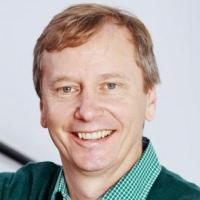SystemX Affiliates: login to view related content.

With the arrival of 5G we are entering a new phase of communications infrastructure. Today the network is mainly used for moving content, e.g. videos, web data, emails, and audio. However, neither are sensors widely connected to a ubiquitous network, nor can we remote control real and/or virtual objects. In the latter case we require the installation of the "Tactile Internet", i.e. a network which allows for 1-10ms end-to-end response latency. Once this is achieved, humans, machines, as well as robots will be able to interact in real-time with virtual as well as real objects, enabling applications spanning the economies of health & care, manufacturing, mobility, edutainment, events, and energy. Each new economic opportunity on its own is a market of similar value as cellular is today. However, each opportunity comes with differing boundary conditions on the Tactile Internet, as we have learnt from our project fastZwanzig20 and the 5G Lab Germany.
Many applications require that the system operates with a minimum downtime, measured e.g. as outage. For manufacturing this can be as low as 10^-8, which is in stark contrast to well-designed 4G networks that deliver an outage of 3% at the cost of a latency generating HARQ. We can show with first theoretical results that new concepts allow for low latency reliable communications.
To design the Tactile Internet, today's cellular networks with a best-in-class response latency of 25ms must be redesigned from a physical layer up to the application layer. Due to the slow speed of light of 200km/ms over fiber, central web servers must be augmented by a distributed Mobile Edge Cloud, with new server architectures, operating systems, and more.
In this talk some basic ideas will be addressed which have been developed at TU Dresden, showing solutions from silicon hardware architecture, signal processing and modulation, to edge server design. And, also sketching out the huge startup potential waiting for us!
Gerhard P. Fettweis earned his Ph.D. under H. Meyr's supervision from RWTH Aachen in 1990. After one year at IBM Research in San Jose, CA, he moved to TCSI Inc., Berkeley, CA. Since 1994 he is Vodafone Chair Professor at TU Dresden, Germany, with 20 companies from Asia/Europe/US sponsoring his research on wireless transmission and chip design. He coordinates the 5G Lab Germany, and 2 German Science Foundation (DFG) centers at TU Dresden, namely cfaed and HAEC.
Gerhard is IEEE Fellow, member of the German Academy of Sciences (Leopoldina), the German Academy of Engineering (acatech), and received multiple IEEE recognitions. In Dresden his team has spun-out fifteen start-ups, and setup funded projects in volume of close to EUR 1/2 billion. He has helped organizing IEEE conferences, most notably as TPC Chair of ICC 2009 and of TTM 2012, and as General Chair of VTC Spring 2013 and DATE 2014.


